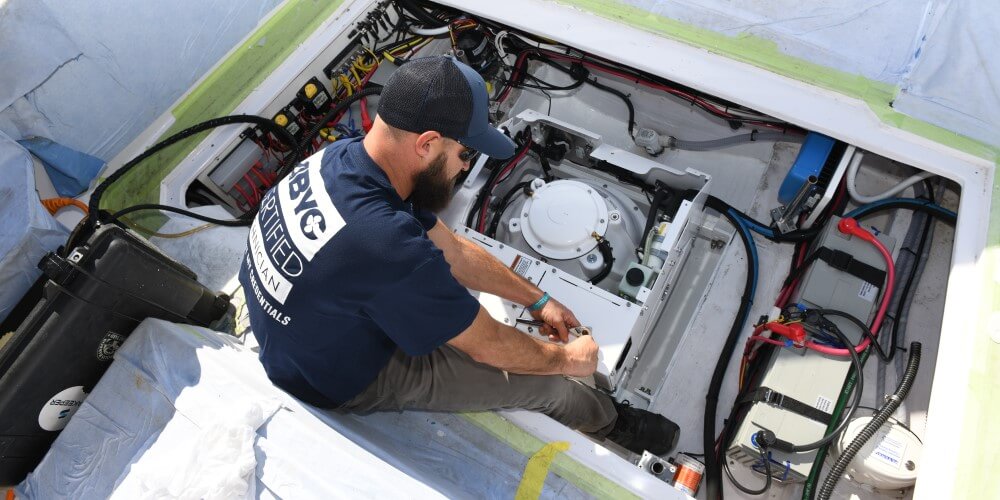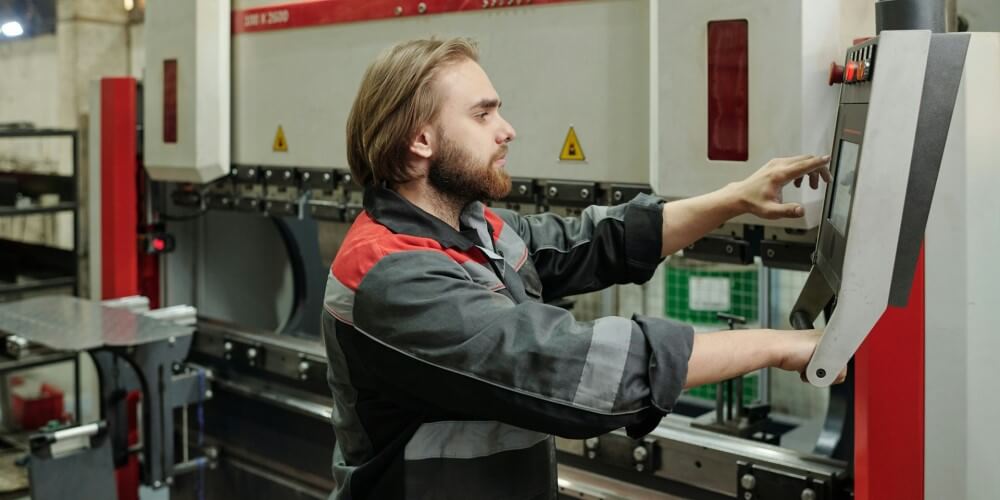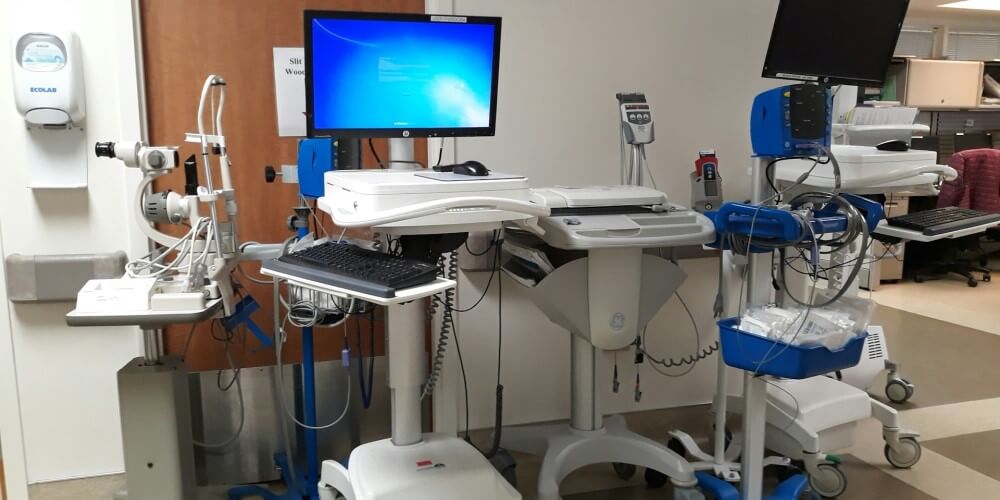There are many misconceptions about higher education and skilled trades. One of the most common is that you need a four-year college degree to be hireable. While it’s true that employers have emphasized four-year degree requirements in the past, we have seen a noticeable shift in the last few decades toward skills-based hiring. Skills-based hiring prioritizes skills and experience learned on the job rather than the candidate’s formal education.
This shift will continue to be one of the ways we work to close the skills gap. Instead of focusing on college degrees, skilled trade and manufacturing industries can replace four-year college degree requirements with trade school program certificates, apprenticeships, industry certifications, and train-to-hire programs.
Inspired by some of our partner organizations, here are a few examples of specialized skilled trade jobs that offer rewarding and exciting careers without requiring a four-year degree.
1. RV Technician

Number of jobs: 17,360
Expected growth: 10% (much faster than average)
Average salary: $50,690
Recreation vehicle service technicians diagnose, inspect, adjust, repair, or refurbish RVs and travel trailers. Because RVs are complex vehicles with interconnected systems, technicians must be familiar with maintaining gas, electrical, hydraulic, plumbing, or towing systems as well as repairing generators, appliances, and interior components.
The recreation vehicle industry has grown steadily over the last ten years and is expected to grow by 4.2% yearly through 2032. Unfortunately, the number of skilled RV technicians is not keeping pace with demand. RV manufacturers, dealers, and suppliers are struggling to find qualified technicians.
This is where the RV Technical Institute (RVTI) is making a difference. RVTI partnered with NBS to create a comprehensive training program aimed at making the certification process simpler for current technicians and encouraging new skilled workers to enter the industry.
RVTI’s hands-on, competency-based program can be completed in 90-120 days and is divided into four levels of certification covering theory and application, specialties training, and troubleshooting. Certification through RVTI is a proof of skills for prospective employers that validates a candidate has the industry-relevant knowledge to be successful on the job from day one.
2. Marine Technician

Number of jobs: 23,230
Expected growth: 2.8%
Average salary: $52,620
Recreational boating is a thriving industry that relies on a highly skilled workforce of technicians, manufacturers, and engineers. Marine technicians must have a broad and diverse skill set including hydraulics, refrigeration, internal combustion engines, plumbing, and electrical.
This is another industry where employers struggle to find skilled technicians to keep pace with demand. The American Boat & Yacht Council (ABYC) is a member-driven non-profit organization that develops voluntary standards for designing, constructing, maintaining, and repairing recreational boats. In the 1990s, ABYC recognized the growing need for skilled marine technicians and partnered with NBS to develop certifications based on their standards.
ABYC now provides education resources, technical training, and certification. Their new Marine Service Technician certification is designed to measure essential skills needed for an entry-level position. ABYC and its partner schools are helping raise awareness of opportunities in the marine technician industry and creating a pipeline of skilled workers who are ready to build successful careers.
3. Automation Technician

Number of jobs: 15,800
Expected growth: 3%
Average salary: $65,080
Now more than ever, manufacturers use robots and CNC technology to maximize productivity and gain a competitive edge. But because automation and robotics are relatively new solutions, many companies struggle to find technicians with the skills to program, troubleshoot, maintain, and repair these complex systems. An automation technician must have knowledge of electronics, mechanics, pneumatics, and computers. Employers generally prefer applicants who have an industry certification or associate degree.
FANUC America, another NBS partner, provides industry-leading CNC, robotics, and automation solutions. They noticed how difficult it was for their customers to find skilled technicians and began an educational program in 2010. Their work brings educational programs and employers closer together with world-class automation training and certifications. Now, FANUC partners with over 1,500 high schools, technical education centers, community colleges, and universities to offer hands-on training that prepares future technicians with the skills and knowledge they need to be successful in this fast-paced industry.
4. Healthcare Facility Technician

Number of jobs: 382,000
Expected growth: 5%
Average salary: $65,662
Hospitals and healthcare facilities are unique buildings made up of complex electrical, ventilation, medical gas, fire safety, and plumbing systems. Behind the scenes of every hospital is a team of maintenance personnel who provide critical upkeep that ensures high-quality care for patients and safety for staff, patients, and visitors.
Like many other skilled trades, the current skills gap is having a negative impact on healthcare facilities management. Not only is the current workforce approaching retirement age, but fewer entry-level workers are entering the workplace. The Institute for Healthcare Facilities Engineering Advancement (IHFEA) provides formal training and certification for healthcare facilities professionals. NBS worked with IHFEA to create a certification to measure essential skills and establish a clear pathway for career advancement. The Certified Healthcare Facilities Technician (CHFT) certification is based on the standards and competencies developed by IHFEA. This credential is helping to establish a clear and effective pathway of education and professional development for the recruitment, retention, and accelerated advancement of healthcare facilities technicians.
Take a Skills-Based Approach to Hiring and Close the Skills Gap with NBS
Nocti Business Solutions helps organizations close the skills gap by providing pre-employment tests and skills assessments. These standardized tests analyze a worker’s specific knowledge and skill level, helping employers hire the right person for the right job. Those who utilize our assessments see increased efficiency, greater employee retention, and improved onsite safety.
We also help organizations develop competency-based certifications to validate skills. NBS is a nationally recognized credentialing body known for developing valid, reliable, and legally defensible technical assessments. We can help ensure your credential aligns with industry standards and provides an accurate assessment of an individual’s technical skills.
If you would like to learn more about our services, please send us a message through our contact form or call 1-800-334-6283.

Recent Comments